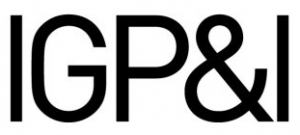Published 13 February 2001
February 2001
TO THE MEMBERS OFASSURANCEFORENINGEN GARD -gjensidig-
Dear Sirs,
BILLS OF LADING - DELIVERY OF CARGOSTANDARD FORMS OF LETTERS OF INDEMNITY TO BE GIVEN IN RETURN FOR:
Delivery of cargo without production of the original bill of lading
Delivery of cargo at a port other than that stated in the bill of lading
Delivery of cargo at a port other than that stated in the bill of lading and without production of the original bill of lading. In December 1998, the International Group of P&I Clubs issued a Circular to Members (see Gard Member Circular No 9/98) recommending revised wordings of the standard form Letters of Indemnity for use by Members in circumstances where they are requested to deliver cargo without production of the original bill of lading and/or to deliver cargo at a port other than that stated in the bill of lading.
As a result of comments from shipowners and shipowners' organisations, a further review of the wordings has been undertaken and further modifications to the standard wordings have now been made. Moreover, discussions have taken place between the International Group and the British Bankers Association (BBA) and a separate standard wording has been agreed on the basis of which banks members of the BBA will now be prepared in principle to join in the Letters of Indemnity while, through the auspices of the International Chamber of Commerce, the BBA will endeavour to promote this agreed standard wording within the international business community. The BBA has also given its general approval to this Circular.
In consequence of the agreement reached with the BBA, the three recommended standard form Letters of Indemnity are now issued in two versions: INT GROUP A (for delivery of cargo without production of the original bill of lading), INT GROUP B (for delivery of cargo at a port other than that stated in the bill of lading against production of at least one original bill of lading), and INT GROUP C (for delivery of cargo at a port other than that stated in the bill of lading and without production of the original bill of lading) for use when the commercial party requesting delivery (the "Requestor") will alone be signing the Letter of Indemnity, and INT GROUP AA, INT GROUP BB and INT GROUP CC for use when a bank will be joining in the Letter of Indemnity and which forms incorporate, in addition to the same indemnities given by the Requestor under INT GROUP A, B and C, the separate standard wording agreed with the banks.
The principal features of the new wordings are explained below.
Financial Limit
The liability of the Requestor should generally not be limited. However, where a bank is to join in the Letter of Indemnity it will generally insist upon a fixed monetary limit. The amount of the limit must be a matter for negotiation in order that it properly reflects the potential exposure in the particular circumstances, taking into account, inter alia, the sound market value of the cargo at the time of delivery, but it is recommended that the limit should be a minimum of 200% of the sound market value of the cargo at the time of delivery.
Duration of security
Under INT GROUP A and AA, the liability of the Requestor (and, hence, the bank under AA) terminates upon the delivery of all original bills of lading to the shipowner. If the original bills of lading are not delivered to the shipowner, the Requestor's liability under the Letter of Indemnity continues.
Subject to delivery of all original bills of lading as stated, and to the two exceptions described below, the bank's liability under INT GROUP AA is for an initial period of six years, but which is automatically renewable from time to time for further periods of two years at the request of the shipowner. The exceptions are (1) that, rather than agree to an extension of its liability, the bank has the option of discharging its liability by paying the maximum amount payable under its indemnity and (2) that, in the event of a demand being made by the shipowner to the bank for payment under the indemnity before the termination date, or in the event of the bank being notified by the shipowner of the commencement of legal proceedings against the shipowner before the termination date, the liability of the bank will continue until the demand has been paid or the legal proceedings have been concluded, the bank, if called upon so to do, paying the amount of any judgement or settlement payable by the shipowner if the Requestor has failed to do so.
Under INT GROUP B, C, BB and CC, since it is possible for a claim to be pursued against a shipowner for delivering cargo at a port other than that stated in the bill of lading despite cargo being delivered against production of the original bill of lading, or all original bills of lading being subsequently delivered to the shipowner (in particular, in circumstances where a charterer may require a cargo owner to receive his cargo at such other port against his wishes and request the shipowner to accommodate his request), the liability of the Requestor will continue until it can be established to the satisfaction of the shipowner that no such claim will be made.
Accordingly, unless the shipowner is satisfied that no claim of this nature will be made, the liability of the bank under INT GROUP BB and CC will be as described under INT GROUP AA above.
Scope of security
The Requestor is obliged to provide bail or other security not only to prevent or lift the arrest of the ship the subject matter of the indemnity, but also any other ship in the same or associated ownership, management or control. In addition, the Requestor is obliged to provide bail or other security to prevent interference in the use or trading of the ship, such as a caveat being entered on the ship's registry to prevent the sale of the ship the subject matter of the indemnity.
Where a bank joins in the Letter of Indemnity it will generally not agree to provide bail or other security. However, the bank will pay any amount up to the limit of its liability under the Letter of Indemnity in order to enable the shipowner to arrange the provision of security if the Requestor fails to provide bail or other security.
Tankers
A provision designed to give greater security to tankers has been incorporated, whereby requested delivery of a bulk liquid or gas cargo to a terminal or facility, or to another ship, lighter or barge is to be deemed to be delivery to the party to whom delivery has been requested.
Members are again reminded that, unless the Association's Committee otherwise determines, there is no cover in respect of liabilities arising out of the delivery of cargo without production of the original bill of lading and/or delivery at a port other than that stated in the bill of lading and that, in such circumstances, Members are strongly advised to ensure that they are fully satisfied with the financial standing and authority of those who are to issue and sign these indemnities.
The standard form Letters of Indemnity are designed to cover a broad range of trades and operations, and Members may wish to modify the standard forms to suit particular requirements. However, in this event, it must be appreciated that if a bank is to join in the Letter of Indemnity there may be limited scope for amendment, and that the Requestor's bank will have to be consulted if any material change is contemplated. The Managers will be pleased to advise Members regarding any proposed modification.
Finally, it is not uncommon for Members to be requested by charterers to agree clauses in charter parties which expressly provide for the delivery of cargo without production of bills of lading and/or at ports other than those stated in the bills of lading against Letters of Indemnity. Members are strongly advised not to accept such clauses and it is recommended that Members seek advice from the Managers before responding to such requests.
Yours faithfully, GARD SERVICES AS As agent only for Assuranceforeningen Gard -gjensidig-
John G. Bernander Chief Executive Officer
Links to the following documentation in Adobe Acrobat format is available under Download forms--Claims forms/Standard Club wording on the Home page of the Gard website www.gard.no. If you do not have Adobe Acrobat Reader you can download this programme from Adobe.
Int Group AStandard form letter of indemnity to be given in return for delivering cargo without production of the original bill of ladingInt Group AAStandard form letter of indemnity to be given in return for delivering cargo without production of the original bill of lading incorporating a banks agreement to join in the letter of indemnityInt Group BStandard form letter of indemnity to be given in return for delivering cargo at a port other than that stated in the bill of ladingInt Group BBStandard form letter of indemnity to be given in return for delivering cargo at a port other than that stated in the bill of lading incorporating a banks agreement to join in the letter of indemnityInt Group CStandard form letter of indemnity to be given in return for delivering cargo at a port other than that stated in the bill of lading and without production of the original bill of ladingInt Group CCStandard form letter of indemnity to be given in return for delivering cargo at a port other than that stated in the bill of lading and without production of the original bill of lading incorporating a banks agreement to join in the letter of indemnity


